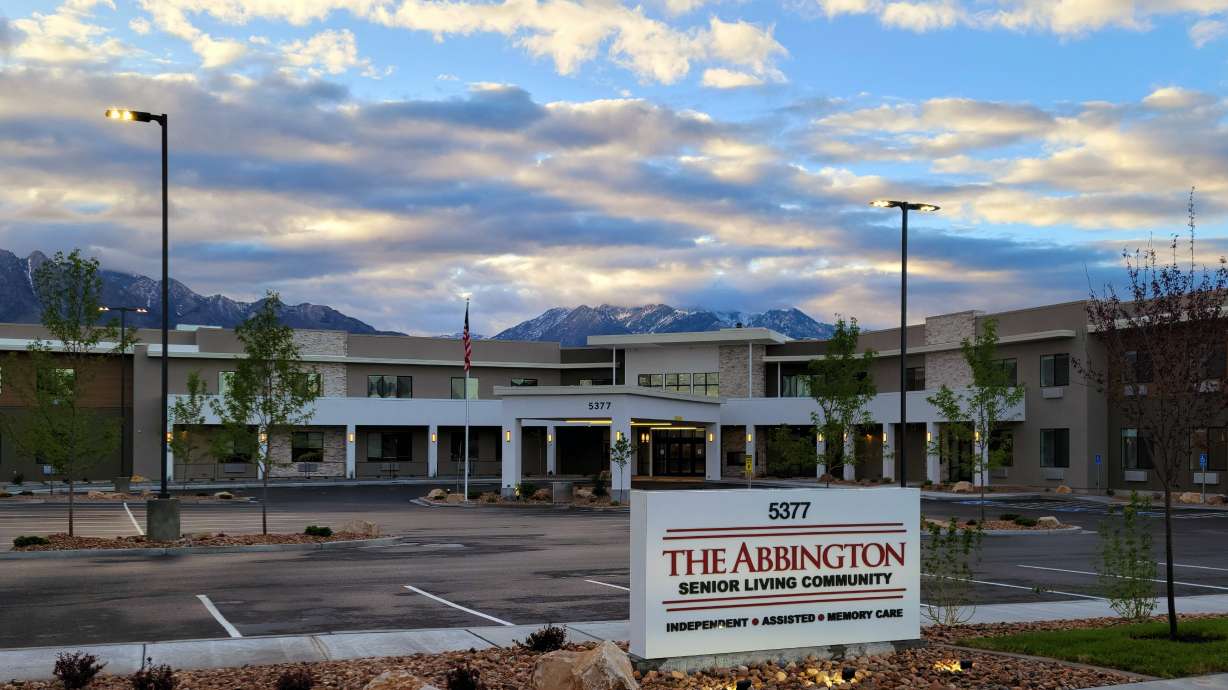Estimated read time: 4-5 minutes
This archived news story is available only for your personal, non-commercial use. Information in the story may be outdated or superseded by additional information. Reading or replaying the story in its archived form does not constitute a republication of the story.
SALT LAKE CITY — Assisted living facilities in Utah have been hit hard financially during the COVID-19 pandemic and were offered little government relief compared to other health care facilities, the Utah Assisted Living Association says. The association appealed Wednesday to Utah Gov. Spencer Cox, requesting $253 million in relief funding per licensed personal bed basis, which is roughly $16,000 per bed.
With increased costs from the pandemic and record-low occupancy, some facilities have closed, some have been sold and some are struggling to remain open because of financial loss, said Rick Walker, the legislative chairman of the association. And the people who are feeling this loss the most are some of the poorest and most vulnerable Utahns — the senior residents. Their needs have only increased with the pandemic, he added.
The association represents care for over 15,000 seniors in 209 facilities across the state. The average age of residents is 85 years old, and most have chronic health conditions that require help with personal daily life activities like bathing, eating and using the bathroom. Staff members cannot provide these services while social distancing, which means that they have to take extra precautions to ensure that the virus isn't spread while caring for the residents.
"It was amazing to watch the staff and individuals go above and beyond to protect the residents," Walker said. "Safety is first and foremost our concern, in the way that we are cleaning the facilities, the way we're interacting with each other. We're working with the health department to make sure we're doing this as safely as we can."
Senior living providers have paid for personal protective equipment for workers, hero pay, additional staff and cleaning and sanitizing services, all while losing revenue. The letter explains that these financial losses "are long-term, compounding and unsustainable."
During the early portion of the pandemic in 2020 there were frequent outbreaks in nursing homes, which meant that some families pulled their loved ones out of care, some families were not allowed to visit their loved ones in care and when some residents passed away — either naturally or from COVID-19 — other people were reluctant to move in.
Utah has a wonderful history of reaching out to serve and lift those that are in the greatest need in our communities.
–Utah Assisted Living Association Executive Director Katie Mansell
In June, the American Health Care Association and National Center for Assisted Living released a survey of over 14,000 nursing homes, assisted living communities and other long-term care providers across the U.S. that found only a quarter of nursing homes and assisted living communities are confident they can last a year or more, and more than half are operating at a loss.
The needs of people in assisted care facilities, the wages of staff and the number of health risks and precautions increased while the number of occupants and the funding decreased. The Provider Relief Fund, established by the federal CARES Act coronavirus relief bill, allocated less than 1% of the federal funding — around $1 billion nationwide — compared to $12.5 billion for skilled nursing facilities that serve the same number of seniors.
After vaccination efforts, Utah facilities were finally starting to see people move in again. Then the delta variant hit, slowing down the return to normal occupancy levels.
Although advocates asked for more relief funding, assisted living facilities were left out of the American Rescue Plan Act of 2021. But when the Utah Assisted Living Association saw that the state of Utah was given $2.542 billion for state and local funding, it decided to appeal directly to Gov. Cox to "help sustain this most precious population in our state."
"Utah has a wonderful history of reaching out to serve and lift those that are in the greatest need in our communities. We have a unique opportunity, provided by our jobs, to serve some of those in greatest need each and every day. Our seniors are blessings to this great state and they are in need of your help," Utah Assisted Living Association Executive Director Katie Mansell wrote in the letter.
"Over 85% of the residents that live in senior living communities pay for their own care. Senior living provides an affordable option for seniors, thereby preserving Medicaid for the most financially challenged and frail seniors."
Walker got into this field 21 years ago after watching his family members struggle to care for his grandmother in every way they knew how and still fall short.
"She moved into a community and we watched the way that they provided services to her that as a family we couldn't," he said. His family could just focus on loving her and knowing she was provided with the best care.
Although seniors tend to be forgotten or left behind in society, they are "all we focus on," Walker said. "Why we get up is to help them. We think about them all the time. I've always known over these 21 years the reason that the staff gets into this is because of the love of the staff for the seniors."
He also emphasized that this request would only be a temporary relief to allow assisted care facilities to get back to where they need to be financially able to provide the best care for these residents.
So far, the association has not heard back from Cox, but they are optimistic that he will be willing to help. Cox's office did not respond to a request for comment.









